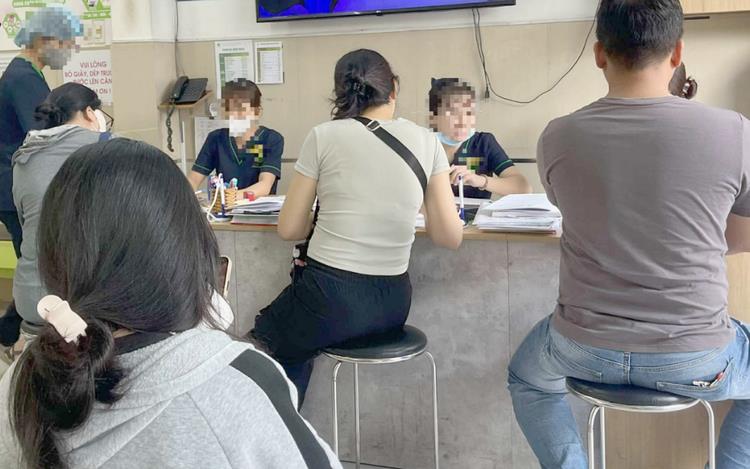Cancer, stroke screenings in Vietnam: Health safeguard or profit trap?

Cancer and stroke screening packages are being aggressively marketed by clinics and hospitals across Vietnam, targeting people with fear of life-threatening diseases and promising early detection, but medical experts are warning that many of these screenings are unnecessary, unscientific, and driven more by profit than patient care.
Advertisements on these packages often suggest that everyone, regardless of age or health status, should undergo regular screening.
Popular messages like 'early cancer screening to proactively protect your health' or '30% of healthy people are at risk of stroke' paint a picture that no one is truly safe, a narrative that plays directly into public anxiety.
Several clinics advertise initial costs ranging from a few hundred thousand Vietnamese dong to some million dong. (VND1 million = US$38.27)
However, once patients are inside, costs frequently balloon into tens of millions of Vietnamese dong due to add-ons like CT scans, MRIs, and advanced blood tests.
Clinic C.P. in Tan Binh District, Ho Chi Minh City offers cancer screening packages from standard to in-depth levels, priced at up to tens of millions of Vietnamese dong, with additional discounts for group sign-ups.
An international medical system in Ho Chi Minh City advertises that stroke can strike anyone, urging even healthy individuals to consider a screening package priced at over VND12 million ($460).
Another hospital touts its use of high-end machines like 3 Tesla MRI and DSA technology, suggesting they can detect even the most subtle abnormalities before symptoms arise.
Warnings against unnecessary screenings
Dr. Nguyen Trieu Vu, head of the breast department at the University Medical Center in Ho Chi Minh City, told Tuoi Tre (Youth) newspaper that many of these advertisements are primarily commercial, lacking scientific basis and offering little benefit to those undergoing screenings.
There is no single test and screening that can detect all cancers, he said, emphasizing that disease progression over time can render single-point screenings ineffective.
Dr. Nguyen Huu Hoa, an oncology expert and advisor to the Pasteur Clinic in Da Nang, echoed these concerns.
He said that many clinics exploit the public's fear of cancer with little regard for appropriate medical evaluation.
"Instead of thorough clinical examination, doctors immediately send patients to tests--sometimes biopsies--though they show no symptoms," he said.
Stroke screening: misguided and costly
Dr. Nguyen Huy Thang, president of the Ho Chi Minh City Stroke Association, said that many people falsely believe that they must undergo expensive MRI or CT scans to assess their stroke risk.
In reality, no countries, including the United States, recommend routine brain imaging for stroke prevention in healthy individuals.
Screenings should be limited to people over 50 or those with known risk factors, Dr. Thang explained.
Widespread screenings in the healthy population are costly and ineffective.
He emphasized that stroke prevention is best approached through a risk factor assessment by a qualified physician.
Most strokes occur in people with underlying conditions, the doctor added.
Professor Tran Dong A, senior advisor at Children's Hospital 2 in Ho Chi Minh City, told Tuoi Tre that some doctors are overusing diagnostic tests and screenings rather than their professional expertise.
A competent doctor who listens and examines patients carefully can often diagnose without expensive machines, he stressed.
He pointed out that in some developed countries, if doctors order unnecessary high-tech tests, they must bear the cost.
Dr. Hoa underlined that the best doctors are those who minimize testing and prioritize clinical judgment.
Cancer risk warning from CT scans
A study by the University of California in San Francisco, published in JAMA Internal Medicine, warns that CT scans may contribute to up to five percent of all cancer cases in the U.S. due to ionizing radiation exposure.
Dr. Nguyen Cao Luan, an immunotherapy specialist who graduated from the Lowy Cancer Research Center at the University of New South Wales, Sydney, Australia, said that CT scans represent a trade-off between immediate benefits and potential long-term risks.
The X-rays used in CT scans are a form of ionizing radiation, which can damage DNA and increase the risk of developing cancer.
Tieu Bac - Xuan Mai / Tuoi Tre News
(2025/06/20-17:33)
Tuoi Tre
- 06/20 17:41 Ho Chi Minh City to launch $280mn canal renovation project in September
- 06/20 17:33 Cancer, stroke screenings in Vietnam: Health safeguard or profit trap?
- 06/20 17:24 Vietnam's retiree visa should attract financially stable individuals: opinion
- 06/19 17:55 Vietnam attracts strong FDI despite global trade uncertainty
- 06/19 17:48 US transfers third coast guard cutter to Vietnam
- 06/18 18:01 Cruise tourism booms in Vietnam
- 06/18 17:54 Over 100,000 visitors attend Vietnam culture, food festival in Japan
- 06/17 17:57 Da Nang forces many tourist electric car companies to temporarily halt passenger transport
- 06/17 17:51 In Vietnam, family donates organs of brain-dead man to save 7 lives
- 06/17 17:44 Take a trip to Yang Bay--an emerald in Vietnam's Nha Trang
- 06/16 17:45 Vietnamese tourists flock to South Korea for medical beauty services
- 06/16 17:41 Vietnam abolishes district-level administration in landmark constitutional amendment
- 06/16 17:39 Third round of Vietnam-US trade talks sees significant progress: ministry
- 06/16 10:22 Off-season floods take heavy toll on crops in central Vietnam’s flood-prone district
- 06/16 10:12 Vietnam weighs awarding Third-Class Labor Medal to Japanese professor
- 06/16 10:07 Vietnam’s newly-licensed Sun PhuQuoc Airways to launch ticket sales in Q4
- 06/16 10:03 Vietnam condemns dangerous escalations in Middle East conflict
- 06/13 18:23 American tech firm AMD partners with Ho Chi Minh City to develop regional hi-tech hub
- 06/13 18:10 Vietnam's AI economy projected to reach up to $130bn by 2040













